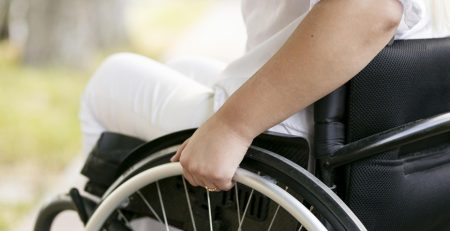- No products in the cart.
How to determine if you’re more suitable for a power chair or a wheelchair
Power chairs and wheelchairs are both very reliable mobility devices. Each can assist individuals with impaired mobility as they navigate a range of terrains and create a more independent life for themselves. However, these sophisticated pieces of equipment can only be used properly by individuals who are best suited for them. People may not think there are very many crowning differences between these two devices, but one very distinct feature that sets them apart is the type of mobility concern each caters to. There are a variety of other medical needs and person-specific qualities that point toward use of one of these devices in lieu of the other:
Postural control
If you are someone who lacks core stability — that is the strength and stability of the abdominal and back muscles — you will likely not get the reassurance and safe seating accommodations you need from a wheelchair. In this instance, a power chair will offer you the upright stability that allows you to safely interact with your environment and remain in control of your mobility device.
Ability to manage the device
Independence in the use of your mobility device is crucial to deciding which is best for you. For example, if you are unable to propel your device on your own and need a caregiver’s assistance for this, you are likely a better candidate for a caregiver-attended wheelchair or wheelchair with a power pack to assist in propulsion. On the other hand, if you are comfortable using your device consistently outside of sleeping and showering and you don’t plan to transport it separately from you, you may be more appropriate for a power chair. Power chairs are larger, bulkier, and more difficult to disassemble for any mode of transport.
Additionally, if you are using a power chair, you must be able to keep track of its battery life, ensuring it consistently has enough charge to keep you safe when you are travelling outside of the home. Alternatively, you should recruit assistance from a caregiver or friend to plug it in nightly or remind you to check the power level consistently. The electric components of a power chair also mean there is more maintenance (including checks and basic tune-ups) than a regular manual wheelchair would necessitate. If you are unable to manage these aspects of owning a power chair, you may be more comfortable and a better fit for using a wheelchair.
Cost
Unfortunately, cost is also a factor that many people need to consider. As such, it is important to note that power chairs will cost significantly more than manual wheelchairs, simply due to the fact that they are more sophisticated pieces of equipment. Alongside this cost, though, comes more bells and whistles than your average wheelchair will offer you. The simple fact of having more features, both safety and accessory, often makes individuals feel assured that they are able to get around wherever they need with little effort on their part.
Comfort
While manual wheelchairs can be comfortable with a variety of padded, gel or foam cushions to relieve pressure and increase joint alignment, power chairs are considered more comfortable by nature. Power chairs have large, cushioned seating with a high-back style, head rest, padded armrests, and a delineated platform where both feet can rest. For this reason, individuals who need this type of support across their entire body may be better suited with a power chair.
However, it is important to note that comfort should not be the only reason someone opts for a power chair in lieu of a wheelchair. There are a lot of components that make a power chair a more difficult device to operate and maintain for certain people.
Steering capabilities
It is important to consider not only your level of independence before purchasing one of these devices, but also the functioning of your upper body (namely the hands and wrists). Individuals who opt for a power chair will not have the option of someone assisting them with steering or accelerating in any way, so they should have sufficient function of their operating hand (both wrist and fingers) to ensure they can steer. Additionally, individuals who use a power chair will need intact cognitive abilities to steer and maneuver their device on a clear path throughout the community.
Individuals who opt to use a self-propelled wheelchair will need strong upper body function on both sides of their body, stemming all the way from their shoulders to their upper arm muscles, elbow, forearm, and all parts of the hand. This is because it takes a decent amount of effort to propel a wheelchair, especially considering it is a job for both arms. While the act of propelling a wheelchair will serve to strengthen your arms a bit, you should already have at least average strength to start off with using a self-propelled wheelchair. Alternatively, individuals who have any issues with steering are better suited for a caregiver-attended wheelchair for the safety of the individual in the chair.
Size
Size is another factor that makes mobility devices a poor fit for certain environments. If you are someone who only plans to use your device inside your home, a wheelchair is the better option for you — as there is a bigger turning radius with more precise steering capabilities. Power chairs are more appropriate for individuals who need assistance within the community or in large spaces such as long-term care facilities and recreation centers.
As you can see, there is much more than meets the eye relative to choosing a mobility device. This is especially the case for power chairs and wheelchairs, as individuals who opt for a power chair should be able to get regular tuneups for the device, keep its battery charged, and have an operational hand that can steer and accelerate. This is a bigger undertaking than owning and operating a wheelchair is, so individuals should be sure that they are able to check off all these boxes before choosing either a wheelchair or a power chair. Being prepared and doing your research on each option is always a sound idea to ensure you are getting a mobility device that is the best fit for your life and your needs. If you are still unsure of which device your circumstances are suited for, contact a mobility specialist for further assistance.















